Written by Zhafira Aqyla
There are many international students in Japan who are staying in the country along with their family (spouse and children) for the duration of their study period. Since students are generally funded by scholarships, living in an affordable housing that can provide enough space for one family is especially ideal. Well, guess what? This is entirely possible thanks to the Japanese governmental housing, or more commonly known as Jūtaku (住宅)!
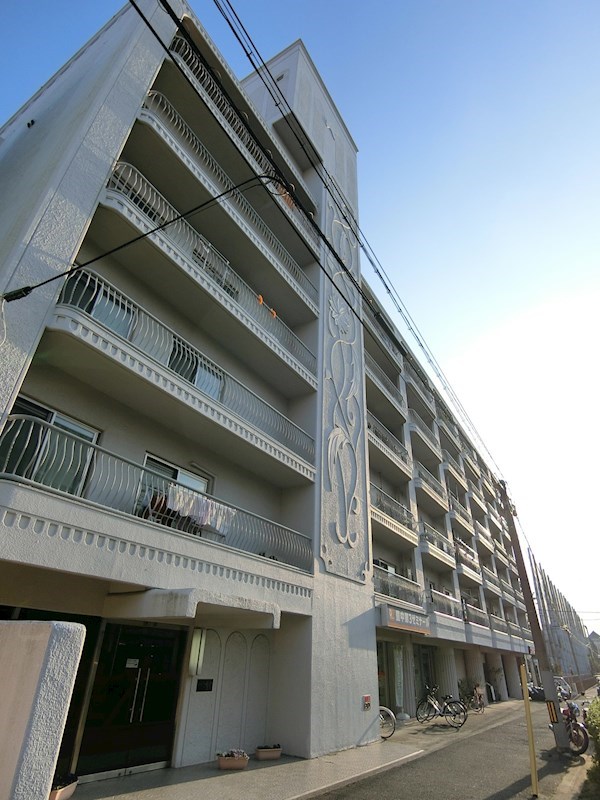
Types of Government Housing
There are many government housing in Japan, and these housings are commonly organized by two different government levels. The first is housings organized by the local city hall, while the rest are organized by the prefectural government.
City Housing (市住宅)

If you are interested in applying to a housing in the city where you currently live, the city housing may be the best option for you. To give a clearer image, let’s say you currently live in Toyonaka city, Osaka Prefecture. If you apply for the city housing, you can register for any housing inside Toyonaka city. If you prefer a certain area that is close by to your university or children’s school, you can choose accordingly based on their availability.
Prefectural Housing (府営住宅)
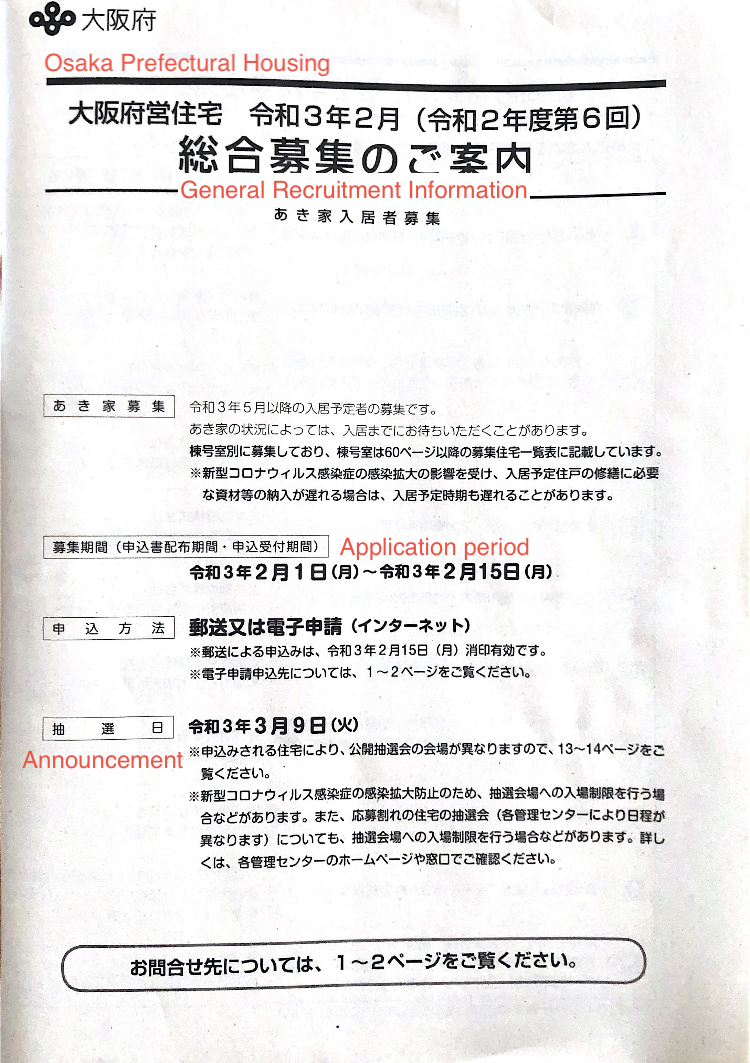
If you do not have a preference so long as you remain in the same prefecture, you can apply to this one instead. Let’s use the example of Toyonaka City, Osaka Prefecture again. Since there are other cities within Osaka Prefecture, such as Suita City and Minoh City, you can register for a housing in Suita City if you prefer. Since the prefectural government oversees the housings in all cities within the prefecture, there will be a lot more option for you. The one downside is, there may be a smaller chance for you to find an apartment that is nearby where you used to live.
When to Apply
The application period for governmental housing can vary from one area to another. However, it is unlikely that the registration period for both city housing and prefectural housing will overlap. Usually, both governments will adjust the timeline so that those who are unsuccessful in the city application can immediately apply for the prefectural housing a month or so after. For example, let’s say you applied for the city housing in February, and received a notification that you are unsuccessful but early March. You can immediately apply for the prefectural housing in March right before the deadline.
If you are unsuccessful for both, you will have to wait for a few months before you can apply again. For city housing, you will usually have to wait for three months, while you only have to wait for two months for the prefectural housing. Make sure to check the website of your local city hall and prefecture to make sure when to apply!
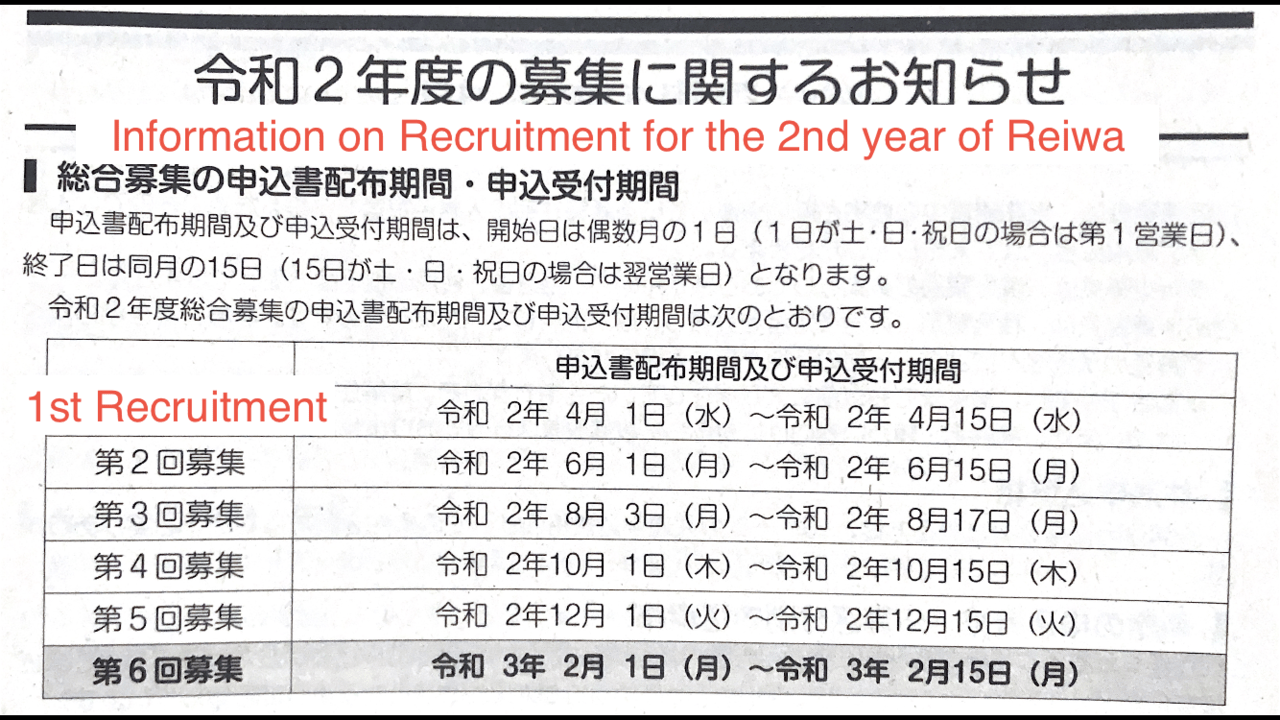
Needed Paperwork
When you wish to apply, you will have to visit your local city hall to get the documents. Don’ worry, the application process is entirely free of charge! Inside this document, you will find an application form as well as a booklet on available housing for you to choose. Since all of the documents will be in Japanese, you can seek help from your friends who are fluent in reading and writing Japanese if you want to make sure to fill them out correctly.
After you receive a notification in your mailbox that you are successful, the office will ask you to submit some documents to proceed with the screening process. While the requirements may differ from region to region, here are the basic documents that you may need to request from your local city hall to collect for the screening process.
Family Certificate 住民票 (Jumin-hyo)
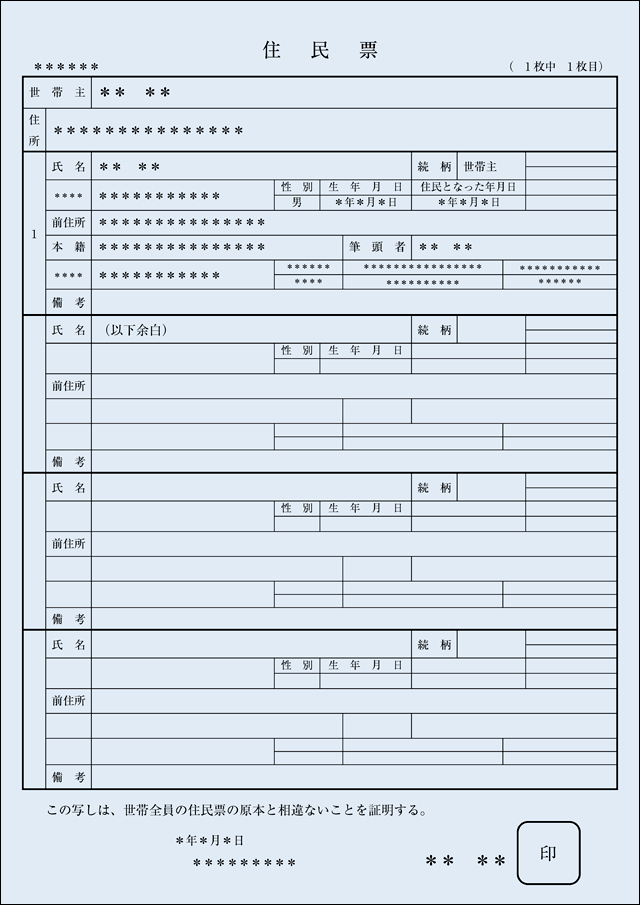
The family certificate is submitted as a prove of that your family members are registered in Japan.
Tax Exemption and Income Statement 非課税証明書 (Hikazei Shomeisho)
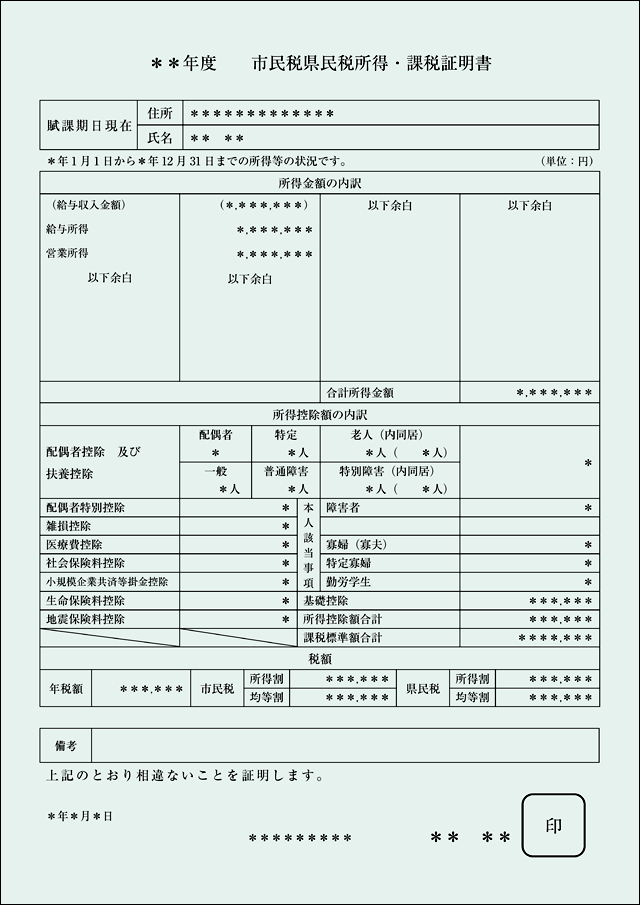
If you are a student, you are exempted from paying tax and are generally not receiving any income. The tax exemption document will state that you are neither paying tax or receiving any income. You can ask for this document at your local city hall. If you just arrived to Japan and are not eligible for tax exemption document, you can send a copy of your passport, visa, and arrival date stamp instead. Other documents to submit include a copy of your student card.
Chance of Getting the Housing
This is what you will need to pay attention on. Unlike getting an apartment or dormitory, there is no guarantee that you will get the housing. Since there are many people who register each time, the government selects the candidate by doing a lottery system. For example, if you want to live in apartment A and there are 10 other people applying for the same apartment and the same room, your chance of getting it is 1 out of 11. Due to this, many people tend to seek for apartment that are less popular to increase their chance of getting it, such as those without elevator or other facilities.
This does not mean you should not try! Many students with families have lived in jutaku before, so you can absolutely give it a go. If you fail the first time, you can try again for the next round, and there will always be the next round. Don’t give up, and we wish you all the best!


